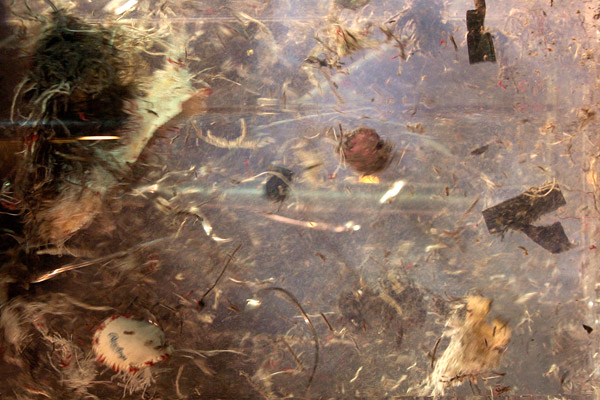
Having long since progressed from Phil Wrigley's early, errant attempt at modernizing the game of baseball, the Cubs are looking for a R&D director. You may qualify if your résumé includes the following:
- Advanced degree or equivalent experience in statistics, mathematics, computer science, or a related quantitative field.
- Demonstrated project management, problem-solving, and teaching abilities.
- Demonstrated ability to communicate difficult and complex concepts at an appropriate level to colleagues possessing a wide range of backgrounds and perspectives.
- Demonstrated expert-level knowledge (of at least 5 years) with baseball-specific data, modern statistical techniques, and sabermetric analysis.
- Demonstrated expertise with R, STATA, SPSS, SAS, or similar software.
- Demonstrated expertise with SQL Server, Microsoft Access, My SQL, Oracle, database administration/structuring, data warehousing and data modeling.
- Knowledge and demonstrated ability in the areas of programming, software-coding, ETL, and/or machine learning techniques.
The word comes from Tom Tango, the pseudonym for a baseball consultant who lives in New Jersey, and whom the Cubs just signed to an exclusive contract. A longtime fixture in the sabermetric community, Tango developed FIP (fielding-independent pitching, designed to evaluate a pitcher's performance exclusive of defense, sort of a more sophisticated version of earned runs) and wOBA (weighted on-base average, a combination of on-base percentage and slugging). ESPN Chicago's Jon Greenberg interviewed Tango, and he's already done the city a good deed (emphasis mine):
You know, when I introduced Leverage Index to a larger audience, I did it the day after Game 6 [the Bartman game].
And what was clear then was that Bartman had very little effect to the game. There were three clear plays that had a far bigger impact: (Alex) Gonzalez flubbing a potential double play and getting no outs, (Derrek) Lee doubling as (Mark) Prior's last batter, and (Mike) Mordecai doubling as (Kyle) Farnsworth's last batter. It's easier to focus on the unusual play, but the focus should have been on the substantive plays.
Many reasonable people—like myself—have contended that Bartman got hosed. The Leverage Index gives us a statistical argument. Via Fangraphs, this is what the game looks like from its perspective.
Source: FanGraphs
When the eighth inning began and Mike Mordecai flied out, the Cubs' Win Expectancy peaked at 95.6 percent. Then Juan Pierre doubled, and it dropped to 92.3 percent. Then the Bartman thing happened, leading to the walk of Luis Castillo. Instead of a man on second and two outs, there were men on first and second with one out.
If you ever played infield, this doesn't seem like a terrible crisis. You miss an out, but it also gives you force-outs across the infield, and opens up the possibility for a double play and an immediate end to the inning. The Cubs' Win Expectancy fell to 88.6 percent, not a large decline—3.7 percent, specifically. Mark Prior then threw a wild pitch; Pierre advanced to third, but Castillo didn't advance at all, keeping the double play alive. WE fell only to 87.2 percent.
Then Ivan Rodriguez singled, scoring Pierre; but Castillo still only advanced to second. The Marlins were down two, and the double play was still in place, and WE was down to only 79.6 percent.
Then Alex Gonzalez flubbed an infield grounder by Miguel Cabrera, which would have ended the inning on the double play. The Cubs' WE dropped to 68.7 percent, as it loaded the bases but without scoring a run. Then Derek Lee doubled, and the Cubs' likelihood of winning dropped 36.6 percent—though the game was tied, the Marlins were then statistically more likely to win.
In terms of a decrease in Win Expectancy, the Bartman play was even less significant than Aramis Ramirez grounding into a double play in the sixth with two on, no one out, and a one-run lead. Taken out of its charged context by his numbers, as Mr. Tango points out, the Bartman play was considerably less significant to the game's outcome than the plays that followed.
Photograph: Chicago Tribune


